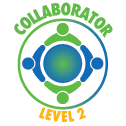Retain High Caliber Talent the Easy Way

According to the Microsoft report titled The Next Great Disruption is Hybrid Work
- 62% of all frontline workers say leadership does not prioritize building culture
- 53% of the workforce is prioritizing health and wellbeing over work than before the pandemic
- 3.5X – New hires whose managers played an active role were much more likely to say they were satisfied with their onboarding experience
- 252% is the increase in weekly time spent in meetings for the average Teams user since February 2020
- 52% of Gen Z and Millennials are likely to consider changing employers this year (up 3% year-over-year)
The takeaway, unless leaders and managers create opportunities for engagement, employees favor quitting their jobs.
But why? Isn’t the anxiety surrounding the economic impact of the pandemic fresh in everyone’s mind? Don’t these people value having a job?
The simple answer is yes. Yes, they do value their jobs, and they are aware of the potential risks. But overall, the risk is less important than the ability to enjoy the way they work.
When it comes to employee satisfaction, what matters most to people is how they feel about their work. People at every level of the organization want to know how to succeed, and that success is actually a reasonable expectation if clearly stated workflow and goals are part of the equation. Well thought-through strategy, gates of responsibility, and an environment that fosters innovation keep high-caliber talent in their seats – regardless of where those seats are.
What does that mean for organizations and businesses that weathered the pandemic? It means they must listen to their workforce. They must mine solutions from inside the organization to retain the talent so vital to their very existence.
What businesses can do today is listen and then ask deeper questions. Not just “Who wants to work from home?” but rather, “How can we be successful together?”
Some helpful, easy to initiate activities to support your teams include:
- Test for chaos tolerance
- Job description reviews and updates
- Communication channel assessments
- Workflow mapping
- Focus groups
- Professional development programs and training
Now is the time to make an impact, not just on your team’s morale but the culture of your organization. Let your employees help you create an ecosystem that thrives by working with them, utilizing their innovative problem-solving skills, and listening carefully to their feedback.
If you want to retain the talent that kept you afloat during the greatest crisis in a generation, take steps today to prepare processes and systems that leverage that talent, and build the leaders within your company who can take the future by storm.
For businesses facing succession or exit planning, fast growth, scaling, or a transition to the ‘remote-work-hybrid’, your team has solutions to help you anticipate these future hurdles and prevent overwhelm. Dive deep and invest the time to ask the questions – the answers and the increased productivity will surprise you!
I worked with a professional coach and realized that for me, having a sense of achievement was very important. I was able to focus my work around that feeling. Understanding what motivates employees (you can’t motivate them, everyone motivates themselves) can help minimize work they find unfulfilling and maximize work that makes them feel good.
@Janet Lentz
Achievement was #1 on Fred Herzberg's list of motivators. Interestingly, money was not.









.png)
